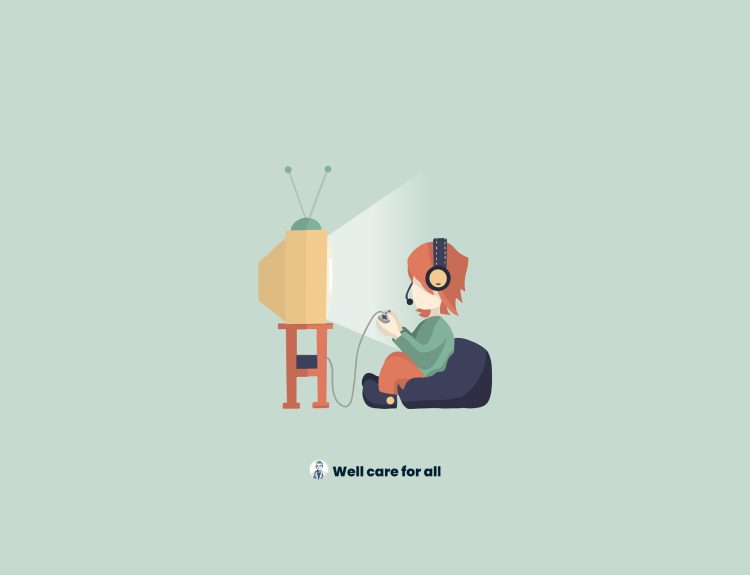
For many parents, the nighttime should be a moment of calm—a time to rest, recharge, and reset. But if you’re a tired parent, you know that’s often far from reality. After the kids are finally asleep, your body may be exhausted. However, your mind is wide awake, juggling tomorrow’s responsibilities, reliving the day’s chaos, and trying to squeeze in a little “you time.” That’s why peace of mind at night isn’t just a luxury—it’s essential for your health and well-being.
This article examines practical strategies to help exhausted parents wake up refreshed and more focused by improving sleep quality and finding mental peace at night.
Why Peace of Mind at Night Matters for Tired Parents
A lack of mental calm during the evening doesn’t just rob you of sleep—it impacts your emotional stability, relationships, productivity, and physical health. Research shows that parents experiencing chronic stress and poor sleep are more prone to anxiety, depression, and burnout.
Mental rest is equally essential as physical rest
When your brain is constantly “on,” even during downtime, it affects hormone regulation, weakens your immune system, and increases irritability. And let’s face it—parenting with a foggy mind and a short fuse is a recipe for disaster.
Create a Nightly Wind-Down Routine That Actually Works
You’ve probably heard about the importance of a bedtime routine for kids. But what about one for you?
A consistent nighttime routine signals your brain that it’s time to switch from go mode to slow mode. Here are a few key elements to include:
- Digital detox (at least 30 minutes before bed): Blue light from phones and TVs messes with melatonin production. Instead, read, journal, or listen to calm music.
- Warm herbal tea or magnesium supplements: Both contribute to relaxation and can assist in regulating your sleep cycle.
- Gentle stretching or yoga: These release tension built up during the day and calm your nervous system.
A wind-down routine doesn’t need to be fancy—just consistent.
Declutter Your Sleep Space to Declutter Your Mind
The environment of your bedroom influences whether you can truly relax. Cluttered spaces equal cluttered minds.
Try these simple changes:
- Minimize mess: Keep laundry and toys out of the bedroom if possible.
- Use calming colors and lighting: Soft, warm tones help ease your brain into a restful state.
- Invest in comfort: A supportive mattress, a white noise machine, and blackout curtains can work wonders.
Make your room a sanctuary, not a storage unit.
Let Go of “Parent Guilt” Before Bedtime
One major sleep disruptor for parents? Guilt. You didn’t read enough books, you lost your temper, you didn’t finish all the laundry. Sound familiar?
Here’s the truth: You did enough.
Give yourself grace. Parenting is messy, unpredictable, and emotionally draining. Perfection isn’t the goal—presence is. A simple gratitude practice or short affirmation before bed can help reframe your thoughts and shift from guilt to peace.
Try saying:
“Today wasn’t perfect, but I showed up with love. That is enough.”
Use Mindfulness to Quiet the Mental Noise
Mindfulness isn’t just a meditation on a mountaintop. It’s a practical tool for grounding yourself in the present moment—even if you’re lying in bed with your mind racing.
Simple techniques for bedtime:
- 4-7-8 breathing: Inhale for four seconds, hold for seven, and exhale for eight. This slows your heart rate and eases anxiety.
- Body scan: Focus on different body parts, releasing tension as you go.
- Visualization: Picture a peaceful scene—like a forest or beach—and immerse yourself in the imagery.
Practicing just 5 minutes a night can significantly reduce stress and improve sleep quality.
Prioritize Your Sleep Like You Do Your Kids
Parents often sacrifice their rest to keep up with everything else. But your well-being sets the tone for your whole family.
Here’s how to make sleep a priority:
- Set a bedtime alarm—not just for your kids—but for yourself. Remind yourself when it’s time to start winding down.
- Avoid caffeine after 2 p.m. and heavy meals close to bedtime.
- Use sleep-supporting tools: Melatonin, calming essential oils (like lavender), or even guided sleep apps can be game-changers.
When you sleep better, you parent better.
Consider Journaling to Release Mental Overload
Journaling at night can help unload your mental to-do list and unresolved emotions. It acts like a mental purge before sleep.
Prompts to try:
- “What made me smile today?”
- “What’s one thing I did well as a parent today?”
- “What can I let go of tonight?”
Even five minutes of writing can bring surprising emotional relief.
When to Seek Professional Help
If your racing thoughts or nighttime anxiety persist despite self-care efforts, you may be dealing with something more profound—like postpartum anxiety, parental burnout, or insomnia.
Talking to a therapist, sleep specialist, or doctor can help uncover root causes and provide lasting solutions.
There’s strength in asking for support. You don’t have to tough it out alone.
FAQs About Peace of Mind at Night for Tired Parents
Q: How can I fall asleep faster as a tired parent?
A: Start a consistent wind-down routine, avoid screens before bed, try deep breathing techniques, and make your bedroom quiet.
Q: Is it normal for parents to feel anxious at night?
A: Yes, many parents struggle with nighttime anxiety due to unresolved stress, guilt, or overstimulation. Mindfulness, journaling, and therapy can all help.
Q: What are quick ways to relax before bed?
A: Drink herbal tea, do gentle yoga, journal, or listen to a calming sleep story. Even 10 minutes of “you time” can help reset your nervous system.
Q: Should both parents practice a nighttime routine?
A: Absolutely. Sharing routines strengthens your bond and helps model healthy habits for your children.
Q: What if I only have 10 minutes at night for myself?
A: Use those 10 minutes intentionally. Breathe deeply, stretch, reflect, or write down three things you’re grateful for. Small moments can make a significant impact.
Conclusion
Parenting doesn’t pause at night—but your mind needs to. Finding peace of mind at night as a tired parent isn’t about perfection but creating a safe mental space where rest can begin. Start small. Choose one strategy that feels doable. Make it part of your nightly rhythm. Over time, those small changes create a ripple effect—leading to calmer nights, better sleep, and a more present, patient version of yourself.
You deserve rest, not just sleep. You deserve peace, not just silence.
Tonight, let calmness be your new bedtime ritual.




This article really highlights the struggles parents face when it comes to sleep and mental peace. The idea of creating a bedtime routine for adults, not just kids, is something I’ve never seriously considered, but it makes so much sense. I appreciate the emphasis on mindfulness as a practical tool—it’s refreshing to see it presented in a way that’s accessible for everyday life. However, I wonder how realistic it is for parents to carve out even 5 minutes for themselves when the chaos of parenting never seems to stop. The suggestion to give yourself grace and let go of guilt resonated with me, but I’m curious—how do you silence that inner critic when it’s so loud? Overall, this feels like a great starting point, but I’d love to hear more about how to make these strategies stick, especially when life feels overwhelming. What’s one small change you’ve tried that’s made a big difference?
Hey, thanks a lot for your comment! I totally get what you mean—finding even a few minutes as a parent can feel impossible. What’s helped me is starting super small, like putting my phone away before bed and just breathing for a bit.
That inner critic? Still a work in progress. But I try to notice it and remind myself I’m doing my best—that alone makes a big difference.
Glad the article connected with you. Wishing you more calm moments ahead—you’re not alone in this!
This article really hits home for me as a parent. I’ve been struggling with sleepless nights and constant guilt about not doing enough. The idea of creating a bedtime routine for myself instead of just focusing on the kids is something I’ve never considered. Making the bedroom a sanctuary sounds simple but feels like a game-changer. I love the suggestion of using affirmations to shift from guilt to peace—it’s such a small yet powerful practice. But I wonder, how do you stay consistent with these changes when life gets chaotic? Also, what specific mindfulness techniques have worked best for you during bedtime? I’d love to hear more about your experience!
Hey, thanks so much for sharing—I totally relate. It’s so easy to focus on the kids and forget about our own needs, right? Turning the bedroom into a calm space and using affirmations have helped me more than I expected.
Staying consistent is hard, especially when life’s chaotic. What’s helped me is keeping things simple—like doing just one minute of deep breathing or a quick body scan before bed. Nothing fancy, just small things that I can stick with.
Appreciate your kind words. You’re doing better than you think—hang in there!
This article discusses how parents can improve their sleep quality and find mental peace at night by implementing practical strategies. It highlights that a lack of mental calm at night affects sleep quality and has negative impacts on emotional stability, relationships, productivity, and physical health. Parents who suffer from chronic stress and poor sleep are more prone to anxiety, depression, and burnout.
The article explains that when one’ brain is constantly “on,̶ it hampers hormone regulation, weakens the immune system, and increases irritability. Parenting with such a state often results in disaster. The article suggests setting up a consistent wind-down routine, decluttering the bedroom, and making it a sanctuary. It also mentions that guilt is a major cause of sleep disruption in parents. Parents often feel guilty because they didn’t read enough books, lost their temper, or couldn’t finish all the laundry. The article advises parents to give themselves grace, live in the present, and embrace the messiness of parenting. It emphasizes that perfection isn’t the goal—presence is.
The article further suggests that mindfulness is a practical tool for grounding oneself in the present moment. Parents can practice mindfulness during bedtime by implementing techniques like body scanning, paying attention to breathing, and considering the elements of the body. Practicing just 5 minutes a night can significantly reduce stress and improve sleep quality. The article concludes by emphasizing that parents should prioritize their well-being, as it sets the tone for their entire family.